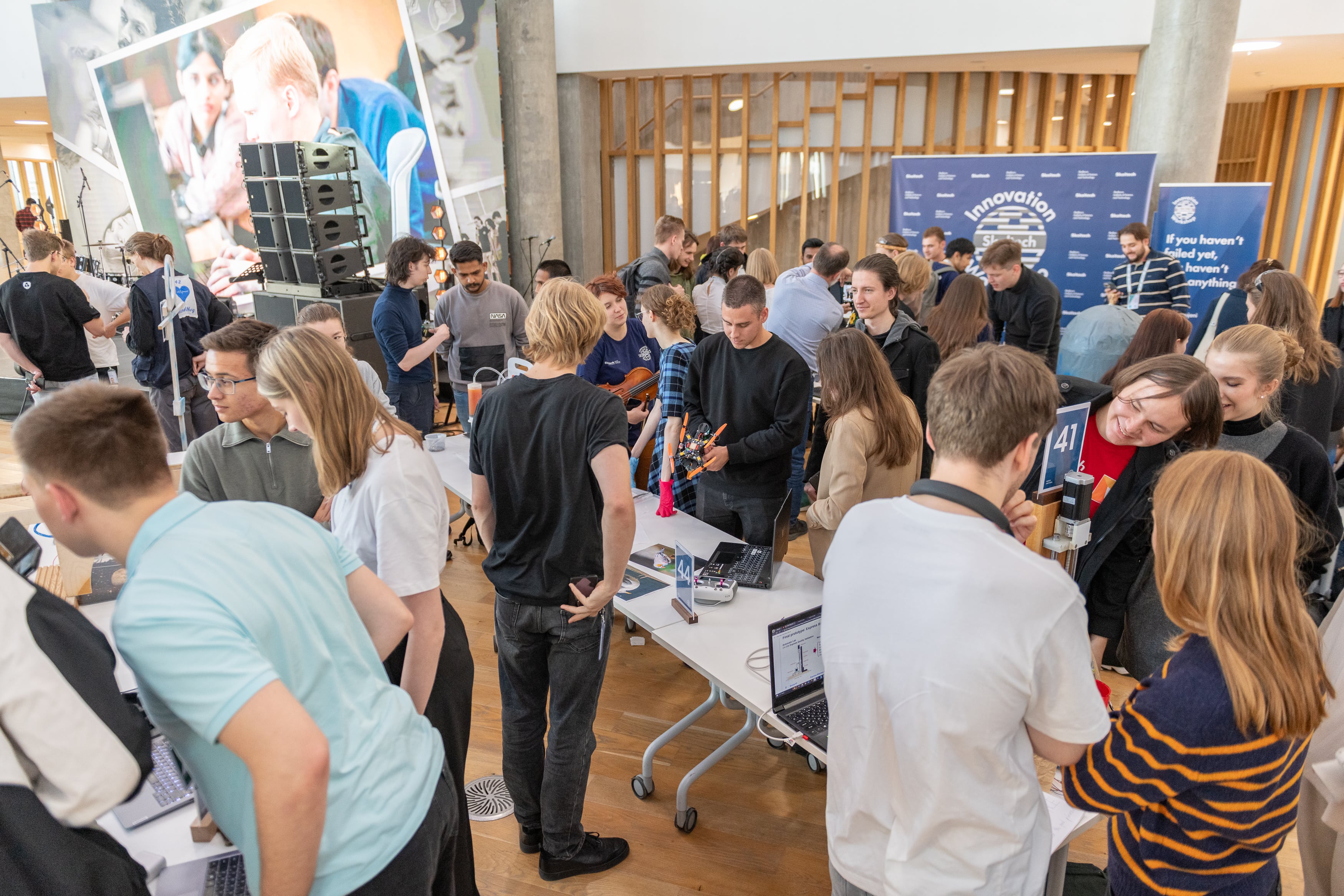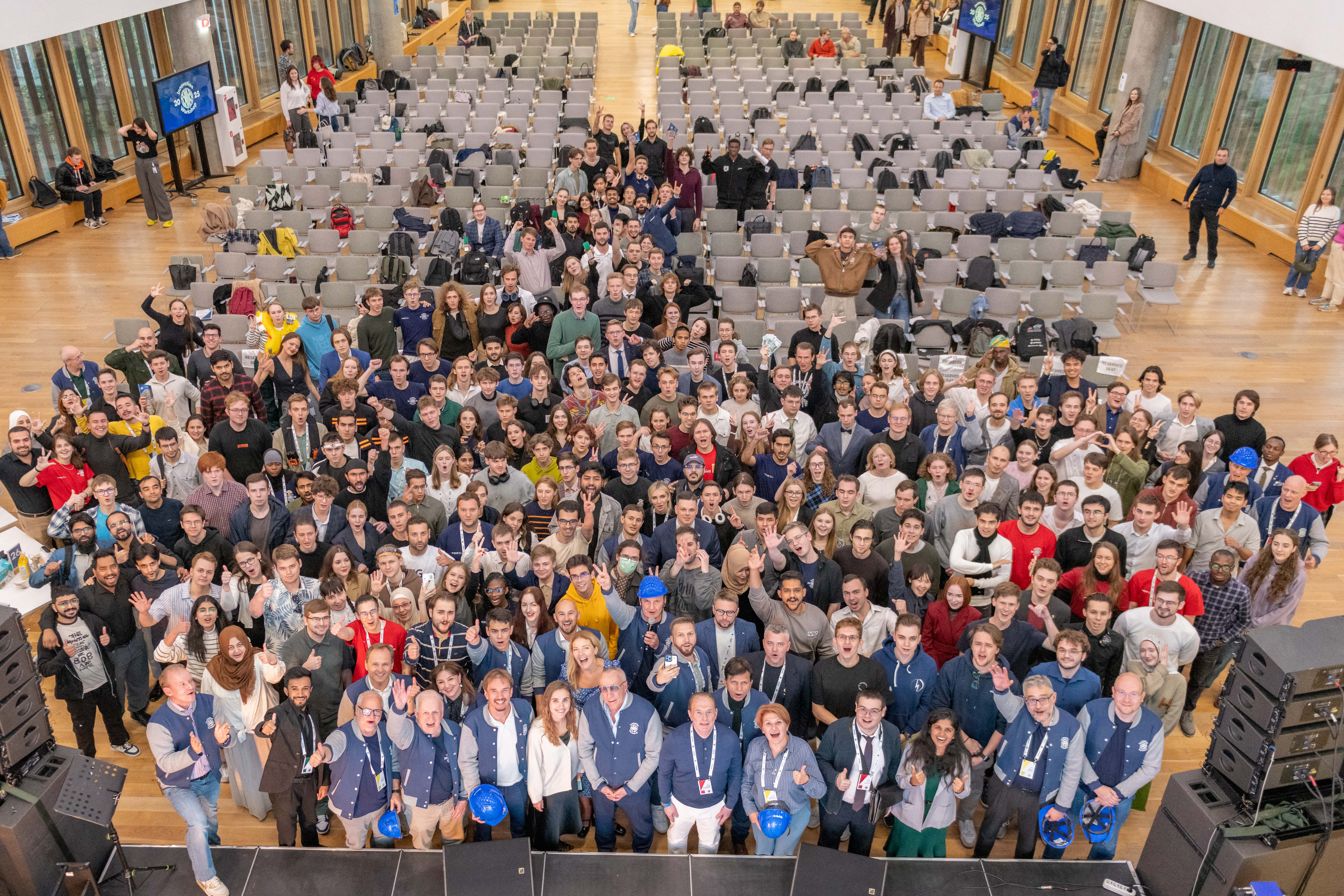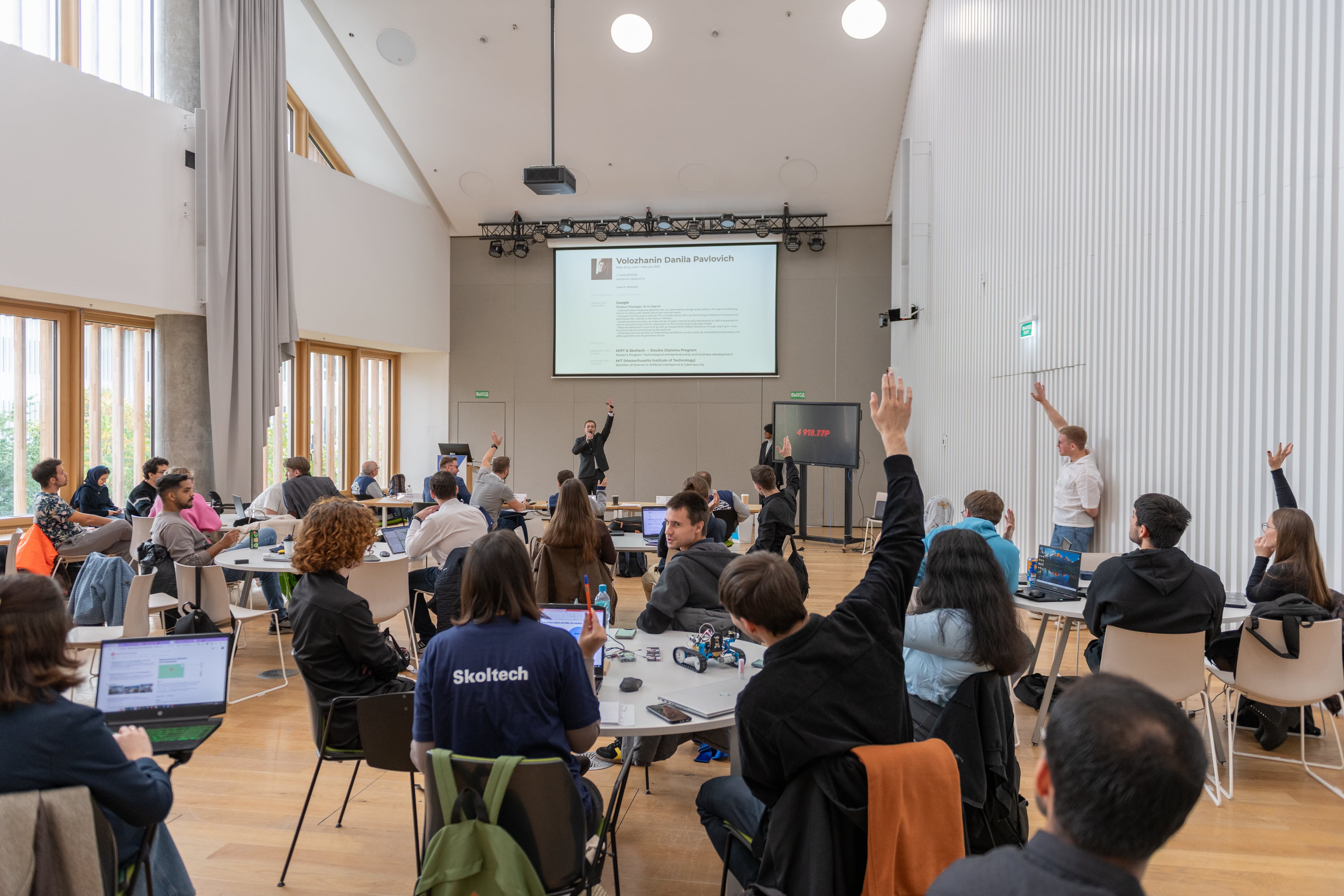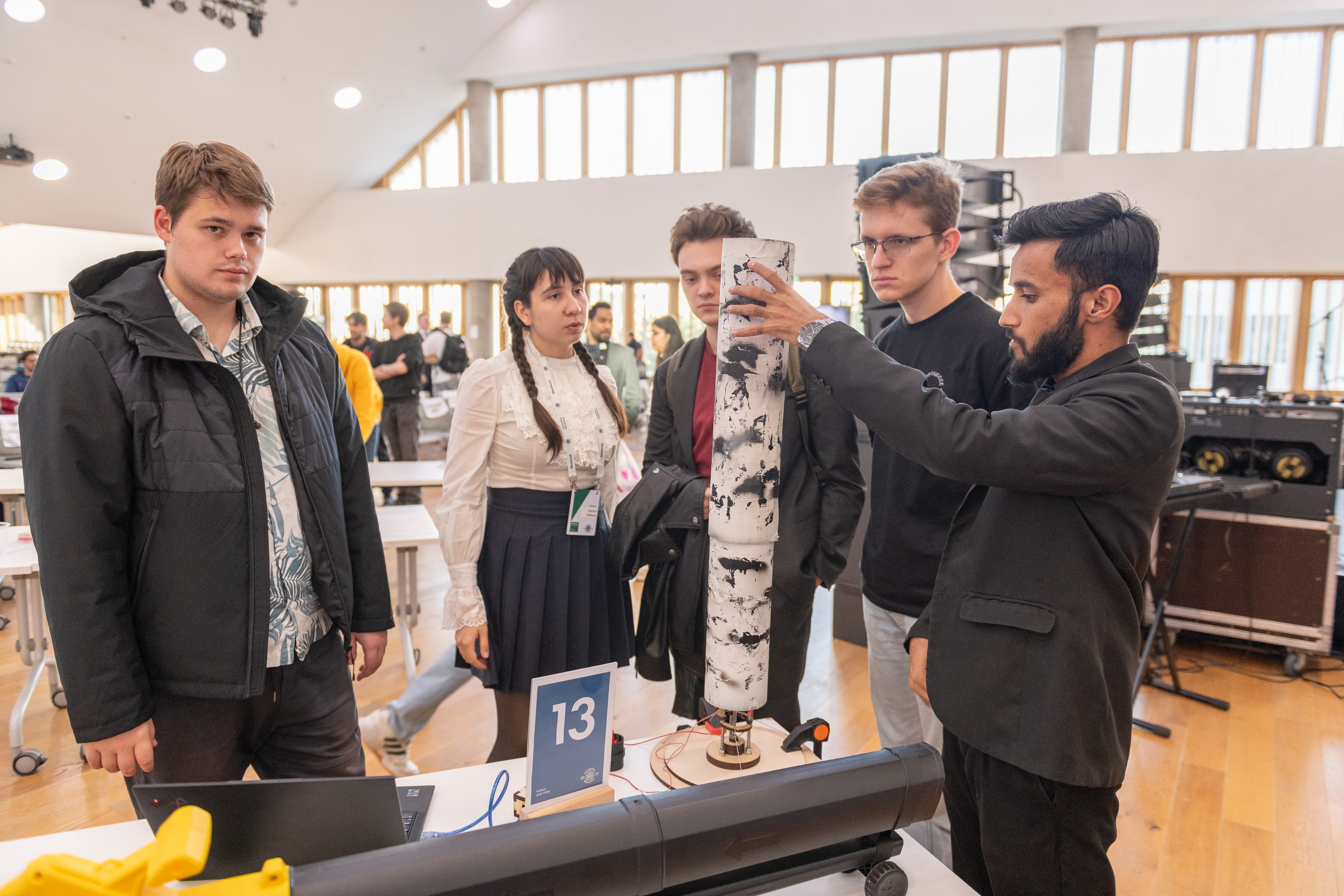The closing ceremony of the 12th “Innovation Workshop” at Skoltech took place on September 26. The expert jury determined six winning projects across all student cohorts:
Naviguide — a portable navigation device: assistance for people with visual impairments. The team proposed a prototype of a new solution: The user wears a special device on their head that helps detect and avoid obstacles using vibrational signals and a special artificial intelligence model.
BituTest — portable sensors resistant to dark petroleum products. The project presents a portable sensor designed to operate in the harsh conditions typical for dark petroleum products. The main end users are specialist operators from oil refining and transportation companies who require on-site operational measurements. The solution prevents bitumen adhesion through ultrasonic vibrations and anti-adhesion surfaces.
CatchMatch — an AI-based service for creating resumes and responding to job vacancies. The AI assistant automatically generates tailored resumes based on the user’s profile and job vacancy links, and also manages responses and interviews through a unified dashboard with smart reminders. Currently, there is no integrated platform on the market for end-to-end management of the job search process using artificial intelligence.
Bladeless Wind Turbines. The solution is based on the phenomenon of vortex-induced vibration: Oscillations of a tube under the influence of wind vortices are converted into electricity using electromagnetic induction. Existing bladed turbines require constant strong winds, cannot be recycled, create noise pollution, and harm nature, while the use of complex gearboxes and massive structures increases maintenance costs and worsens the landscape's appearance. The prototype is a cylindrical tube that oscillates silently. Inside the tube, magnets oscillate within a coil, generating electricity.
Automated Pipeline Inspection System. The development eliminates the need for daily diagnostics of oil well sucker rods, which takes 4-8 hours and costs $15-40 thousand per day due to well downtime. The proposed wellhead equipment automatically scans the pipes from the outside as they are extracted during standard workover operations and promptly generates diagnostic reports indicating the location and severity of defects.
EMG Prostheses. The project addresses the problem of limited functionality of bionic prostheses for people with upper limb amputations. This problem lies in the limited set of user-friendly prosthetic gestures. The usage scenario is as follows: The user intends to make a gesture, which causes muscle contractions in their residual limb. A bracelet worn on the forearm reads these EMG signals. A trained neural network deciphers the specific patterns of muscle activity and sends a command to the robotic hand to perform the desired gesture (typing, grasping, etc.). The solution uses machine learning to decode the EMG signals.
“Among this year’s winners, there are many remarkable stories. For example, the creators of BituTest were initially convinced that their project was of little interest to anyone and would remain a purely academic work. Imagine their amazement when live interest in the development was shown by potential clients from construction companies and government structures. Of course, there were projects related to artificial intelligence. The main thing about them is that students, who have learned to speak eloquently about AI being the future, finally find a specific, niche application for a specific device. At that moment, AI ceases to be an abstraction and becomes a real, living technology of our time. This is precisely one of the most valuable aspects of our Innovation Workshop,” summarized Dmitry Kulish.
Skoltech has created conditions to support student initiatives in the field of technological entrepreneurship. The teams will be able to develop their own projects, receive expert support, and also participate in grant competitions and accelerators from the Institute and its partners.






